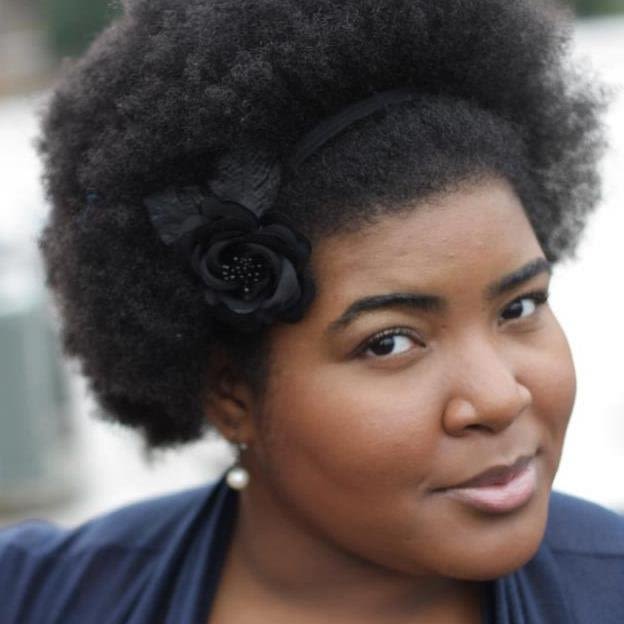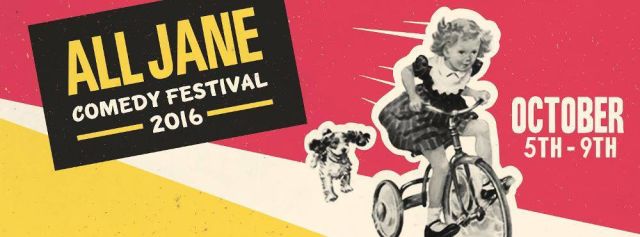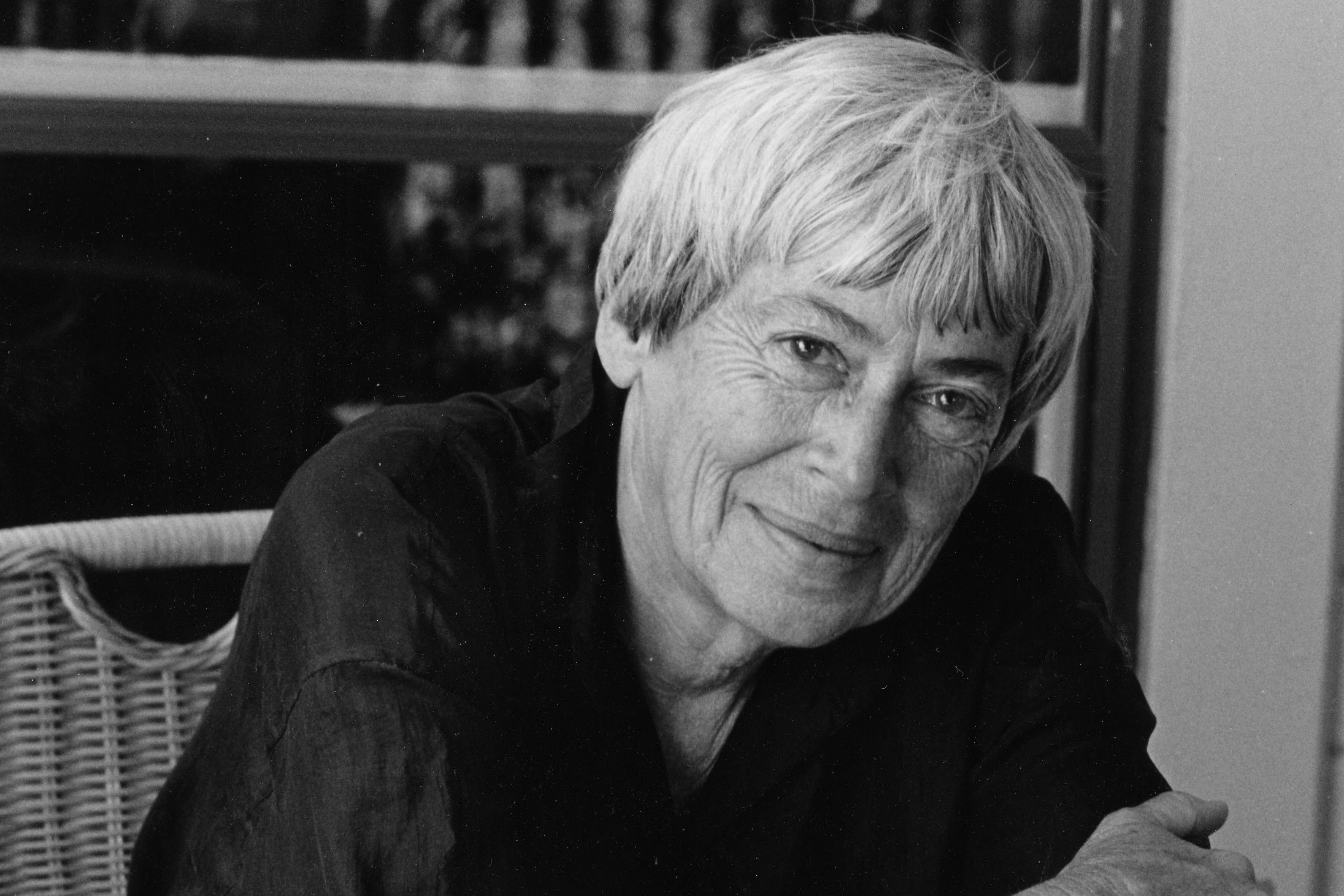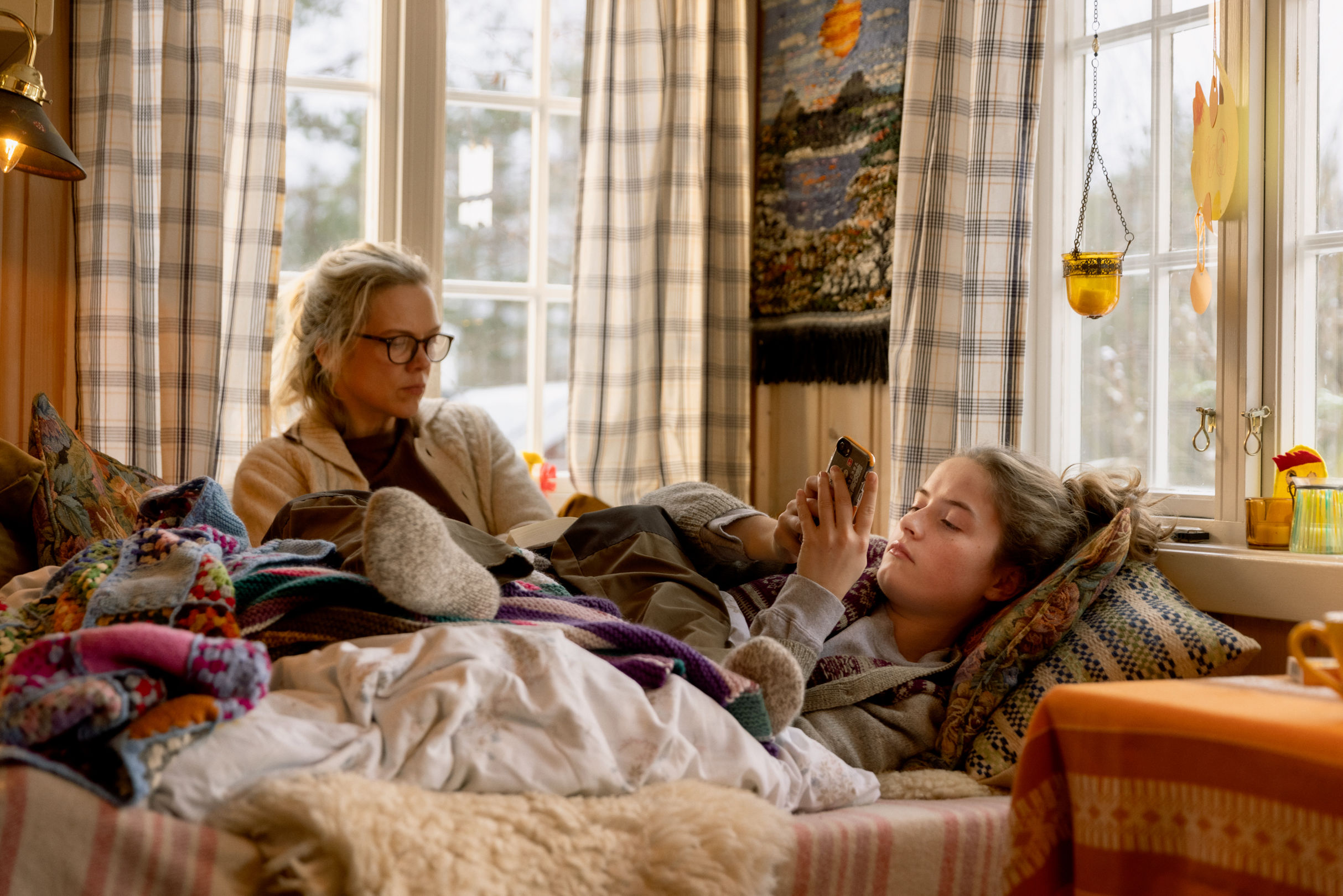Comedian Dulcé Sloan Tells the Truth. But Funny.

Image: All Jane Festival
What do you get when you combine a joke about being felt up at brunch and a casual take-down of microaggressions? Dulcé Sloan. Combining a killer raised eyebrow and wry delivery, Sloan is an LA comic—by way of Atlanta—who has performed at Bridgetown twice and recently appeared on Conan, a rite of passage for any up-and-coming comic.
She’s also heading to Portland for three shows at the All Jane Comedy Festival this week.
In its fifth year, Portland’s all-women comedy festival—which fell afoul of men's rights activists last year—will feature everyone from local legend Susan Rice to headliner Maria Bamford (she of Lady Dynamite). And with women making up somewhere between 10 and 20 percent of performers in the comedy world (see Bitch and Psychology Today for how they arrived at these figures), this five-day festival featuring a glut of talent is a welcome and necessary space for comedians such as Sloan.
We caught up with Sloan to talk about her fated foray into stand-up, the importance of representation on the stage, and the accidental activism of her comedy.
How did you get into stand-up?
A friend of mind worked at the Funny Farm in Atlanta about nine years ago. I met some comics there, and they were telling me that I should get into stand-up comedy, and I kept telling them no, because stand-up scared me so much. My friend stopped working there, so I quit hanging out there, and then I kept running into Big Kenny, who would become my mentor in Atlanta. For two years I kept running into him at events, so he was like, “It’s your fate, dumb-dumb.” So I started doing stand-up. He was teaching a stand-up class and put me in it, and I’ve been doing stand-up since May of 2009.
I know you’ve performed in Portland in the past, and I saw you at this year’s Bridgetown. Portland comedy audiences have a reputation for being kind of tight. What has your experience been?
I’ve done Bridgetown the past two years and always had a great time. I’ve never had an experience where I’ve really had to pull and pull and pull on them. I think it really depends on the show more than the city. I’ve done shows in LA and the crowds are really tight, or shows in Boston and the crowds are really tight. I haven’t really experienced that [in Portland], but I have had other comics say your crowds are tight.
You tell a joke about white women touching your hair and comparing it to a poodle’s fur. You’ve talked about fat shaming. You’ve talked about gentrification. What's the aim of stand-up comedy for you? Is it activism?

Image: All Jane Festival
No, I just use it to talk about what’s happening to me. So I’m not going out with, “I’ve gotta talk about these girls touching my hair, I’ve gotta talk about shaming fat people.” It becomes activism because I’m telling you the truth of my experience.
I’ve had people come up to me after shows—especially white men—and say to me, “That didn’t happen to you.” And I go, “I just told you what happened.” “Oh, people don’t come up and do that.” It’s like, are you serious? For every time I get that reaction, I’m like, okay, I have to keep telling this joke, because there are people who are going to come up to me and tell me: this didn’t happen to you.
It’s not that it’s on purpose. I’m just telling the truth.
It’s interesting that people approach you after the fact. I've heard from other women comedians that men will approach them before the show and say, “I bet you’re going to talk about your period,” or ask if they’re really funny. Is it more challenging to be onstage as a woman?
I’ve never had guys come up to me and say that or anything about my stand-up before. They’ll say stuff to me after. I had a guy at a show one time, he was like—it was a British dude, too—he was like, “Ugh, you’re gonna keep talking about being black.” What else am I supposed to—what else do I do all day but be black? What are you talking about?
I don’t get as much the same pushback [as white female comics], because I talk about being black and being a woman and being a black woman. Sometimes those guys who say stuff to those female comics—it’s usually a white guy saying stuff to a white woman. My experience as a woman and black is so far removed from them that a lot of times, they can’t even comprehend. They’re just like, “Um, oh you were hilarious, thanks.”
Ha, like your experience is just so unrecognizable. I know that stand-up tends to be a sea of white guys. Do you think things are getting better for women and people of color?
I would think so, just based on the fact that people are more aware, even in the industry. Like on shows, I’ll hear a white guy say, “I need a person of color on this show. I need a woman on this show.” I think that white [male] comics are like, “I know what this other white dude is gonna say. I share [similar] experiences with him as a person. I want to hear what other people have to say.”
I think it is getting better, but there still aren’t enough women on shows. There aren’t enough people of color on shows. And whose job is it to make sure that’s a thing? Plus, when there are so many shows and the number of women and people of color is so low compared to the number of white dudes doing [stand-up]? How do you make sure that every single show has women and POC? And then, at that point, are you diversifying your show or is there a tokenism situation where you’re just throwing a body up there?
So how does stand-up become more diverse and more open to genuinely talented voices?
There aren’t a lot of people of color in mainstream rooms. Don’t get me wrong, there are a lot of black comics. There are a lot of Latin comics, but those black and Latin comics aren’t in mainstream rooms. There is a whole circuit of black comedy that we’re not talking about right now.
You just have to have more bodies. You have to have more voices.
So increasing visibility of working comics will help—?
Yes. I mean, you can’t increase visibility if they’re not there. You can’t have more women on shows if they’re not there to perform in the first place, but it’s a start.
Do you think it helps for women and POC to see you? Like, “I can do this, too”?
Yeah, that’s how that works. A lot of times you don’t think you can do something. Like, my entire life growing up, I thought I would be a grandparent before I saw a black president. Legitimately. I was like, I’m going to be in my 60s before I see a black president. So the fact that we [elected] a black president when I was in my 20s, there is now an entire generation of black children who are like, “Oh, we can be president!” When I was growing up, it was like, you can be everything but president. That was never a thing you could do. Now there are kids who are like, “Oh, yeah, I can do this, and this is fine.”
So, me doing stand-up and me being out onstage can let other women, other black women, other plus-sized women know that you can be these things that aren’t necessarily always accepted and still be successful. No one runs around trying to be a role model, but if you end up being one, then you end up being one.
Anything else to add?
I’m really excited about doing the festival. I did Women in Comedy in Boston last year, and that was a really good experience. I think sometimes female comics—we try to make time to hang around each other and talk. Sometimes you have to trade notes, like, what’s with these people and this show? It’ll be good to be on an all-female show that’s not just a gimmick. [All Jane] isn’t, like, boobs and jokes. It’s not a show about periods. It’s about giving a stage to this talent. It’s a festival with a ton of talent that happens to be all women.
Dulcé Sloan performs at Curious Comedy Theater on October 7 at 7:30 p.m. and October 8 at 7:30 and 9:30 p.m. All Jane Comedy Festival runs October 5–9.




